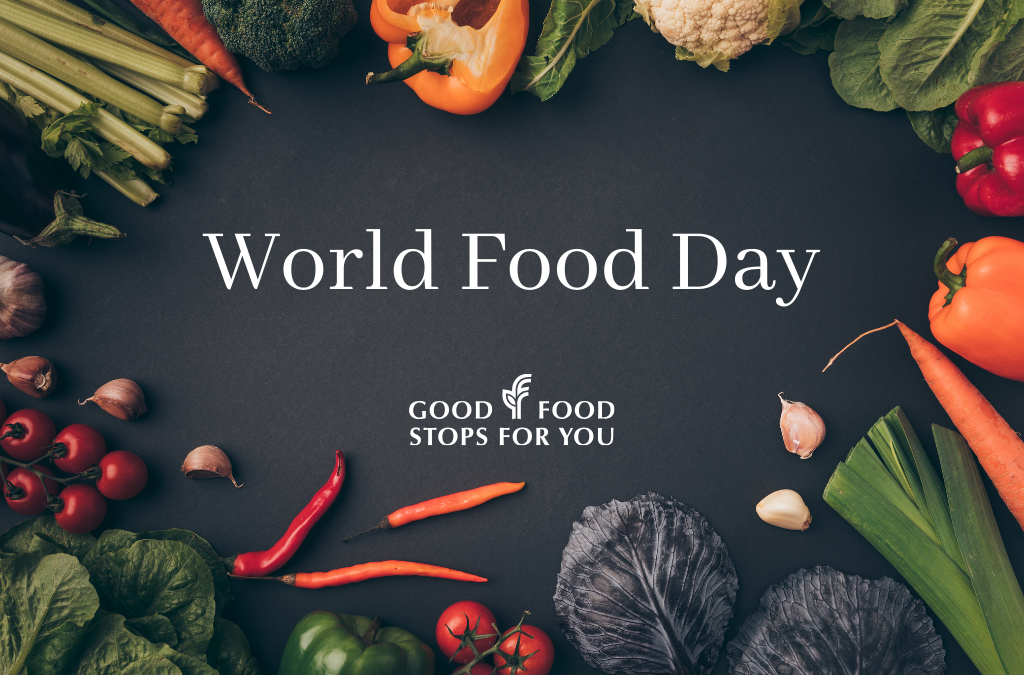
Since 1981, people across the globe have recognized World Food Day as a time to raise awareness of world hunger, food insecurity, and poverty. October 16 was chosen to commemorate the founding of the United Nations’ Food and Agriculture Organization (FAO) in 1945, but the significance of the day has spread to addressing systemic issues of food access and quality through local and global initiatives.
Food as a Human Right
Fresh Routes recognizes that having consistent access to affordable and nutritious food is a right for all human beings. This is why we have made it our mission to provide Calgarians with the ability to shop for their groceries while meeting their financial needs. We hope that our work inspires Canadians to start their own markets or support their local not-for-profit.
Food Insecurity in a Developed Nation
Canada may be a first-world country, but people are struggling to feed themselves. According to Statistics Canada income data from 2022, 18.4% of people in 10 provinces live in food-insecure households. Within the food-insecure group, 1.4 million Canadians are severely food insecure. To put that into perspective, 1.4 million is the estimated population of Calgary — we have a city of people scattered across the country who do not know where their next meal is coming from.
The Ripple Effect of Food Insecurity
Limited or unpredictable access to food creates systemic issues that put a strain on our systems and institutions. Low-income individuals often prioritize cost over nutritional value and consume easily accessible and unhealthy foods, which increase susceptibility to chronic disease.
Persons with disabilities are unable to travel to grocery stores and struggle to prepare food, often relying on takeout to feed themselves. Children with unstable living conditions may not have a reliable guardian to provide meals for them, and the unpredictability stunts normal mental and physical development. Food insecurity usually stems from a root cause that the individual often has limited control over.
The Decline of Nutrient-Rich Produce
On World Food Day, we also recognize that the nutritional content of our produce has been decreasing. To increase yields, modern farming practices often disregard soil quality, which decreases the concentration of macro and micronutrients that our bodies rely on to remain healthy and functional. That, in addition to the prevalence and convenience of highly processed foods, creates numerous health problems that increase chronic disease and put a strain on our healthcare systems. Food-insecure individuals often do not have many food choices and therefore often face greater health problems, such as diabetes, heart disease, and mental health disorders.
Despite these problems, there is always an opportunity for change if people reflect on their role in addressing systemic food insecurity. Local initiatives are the most impactful because they are closest to the individual people in our communities. The community food banks, pay-what-you-can markets, community pantries, and locally-owned grocery stores can provide support to the most vulnerable among us. Consumers who are not directly involved in providing food can write to their elected representatives and be a voice for those who often suffer alone.
Moral Obligation
Ultimately, those ones who are privileged — those who are able to comfortably pay for their basic needs, who have the ability to donate their time, or even the resources to advocate for change — have the moral obligation to support our local communities. We must always look after our neighbours, the people who are the backbone of our society, often working minimum-wage jobs that barely make ends meet. They are the people who have no security net to protect them from pandemics or inflation — days like World Food Day are a reminder of these harsh realities and our individual responsibility to address them.
Get Involved: Support Fresh Routes
Be the change you would like to see in the world by supporting Fresh Routes’ mission by getting involved with the organization or simply being a proud customer. We set up markets weekly at numerous locations across the city. We also collect donations through our website that help support us in providing affordable food to those in critical need. Prospective volunteers are also encouraged to apply on our volunteer page.
Author: Nazeefa Ahmed



